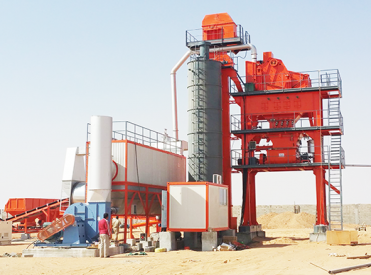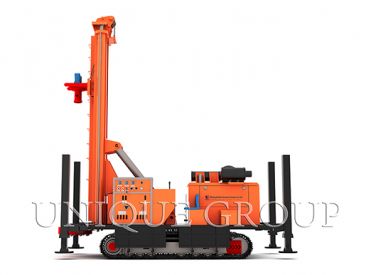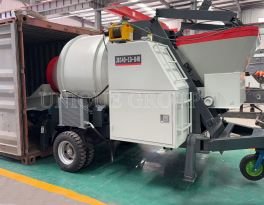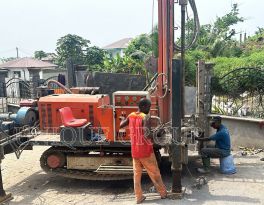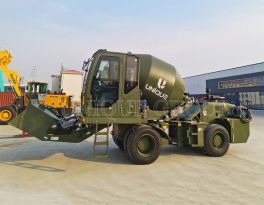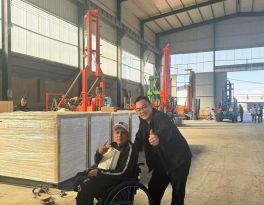
That rhythmic thump-thump-thump echoing across a construction site – it's the heartbeat of progress, the sound of concrete being placed. For decades, this meant wheelbarrows, crews straining under heavy loads, and the constant race against the clock as the mixture slowly set. It was backbreaking, time-consuming, and frankly, inefficient for anything beyond a small patio. Then came the concrete mixer pump. Sleek or robust, mounted on a truck or a standalone unit, it promised a revolution: mixing and placing concrete precisely where you need it, fast. But staring at that significant price tag, the inevitable question arises: is a concrete mixer pump really worth the investment?
Let's cut through the concrete dust. The answer isn't a simple yes or no. It hinges entirely on the scale, frequency, and nature of your projects, and crucially, your long-term vision. Imagine this: you're pouring a complex foundation for a multi-story building, or perhaps a sleek, curved retaining wall. Using traditional methods, you'd need a small army maneuvering wheelbarrows across rebar obstacles, fighting against slump loss and potential segregation. The mixer pump changes the game. It blends the concrete consistently onboard and then pumps it smoothly through a pipeline directly to the point of placement. The precision is remarkable – reaching awkward corners, high floors, or distant sections without manual hauling. The sheer speed? It can transform a day-long pour into a matter of hours.
The undeniable benefits paint a compelling picture:
1. Speed Demon: Time is the most expensive commodity on any site. Pumping dramatically accelerates the placement process. Less time pouring means faster project progression, reduced labor costs on that specific task, and crucially, less risk of cold joints or premature setting issues. Projects finish faster, freeing up crews and equipment.
2. Labor Liberation: Finding skilled, reliable labor is tough. Relying on crews to haul heavy concrete is physically demanding and contributes to fatigue and potential injuries. A pump significantly reduces the number of bodies needed for placement, allowing you to redeploy workers to more skilled tasks or manage multiple phases simultaneously. It's a strategic efficiency boost.
3. Reach the Unreachable: Need to pour a basement in a tight urban lot? A high-rise floor? A slab behind an existing structure? The articulated boom of a truck-mounted pump, or the flexible pipeline of a stationary pump, delivers concrete exactly where it needs to go, overcoming access challenges that would cripple traditional methods. This precision minimizes waste and spillage too.
4. Quality in the Mix: Consistent mixing onboard ensures a uniform blend right up to the point of placement. This minimizes the risk of segregation (where heavier aggregate settles) that can happen during prolonged transport or manual handling, leading to stronger, more durable concrete structures.
5. Versatility as Standard: Modern mixer pumps aren't one-trick ponies. They handle a wide range of concrete mixes – from standard slabs to finer grades for finishing work. Many can also pump grout, mortar, and even some wet screeds, making them adaptable assets beyond major structural pours.
But the Investment Isn't Just Concrete; It's Real:
The flip side, of course, is cost. A quality concrete mixer pump represents a significant capital outlay. Beyond the purchase price, factor in maintenance (hydraulics, wear parts on the pumping system), skilled operator costs (though the labor savings often offset this), fuel, and potential repair downtime. There's also a learning curve – efficient operation requires training and understanding the machine's capabilities and limitations.
So, When Does the Scale Tip Towards "Worth It"?
1. Volume & Frequency: If you regularly undertake projects requiring medium to large volumes of concrete (think foundations, slabs for warehouses, multi-unit housing, commercial builds), the cumulative savings in labor, time, and efficiency quickly justify the investment. Occasional small jobs? Renting might be smarter.
2. Complexity & Access: Projects with difficult access, height requirements, complex shapes, or tight spaces are where pumps truly shine. The cost premium is easily absorbed by the sheer feasibility and speed they enable.
3. Labor Costs & Availability: In regions with high labor costs or persistent shortages, the labor-saving aspect becomes a major financial driver, accelerating the return on investment (ROI).
4. Business Growth: Investing in a pump signals capability. It allows you to bid on larger, more complex projects you might otherwise avoid, potentially expanding your market share and revenue streams. It's a tool for scaling up.
5. Consistency Demands: For projects where absolute concrete consistency and precise placement are critical (e.g., architectural concrete, high-strength applications), the pump's controlled delivery is invaluable.
6. Choosing Wisely: The UNIQUEMAC Factor
Not all mixer pumps are created equal. Reliability is paramount. Downtime is lost money. Opting for a reputable manufacturer known for durability, good parts availability, and solid service support is non-negotiable. Established suppliers like UNIQUEMAC understand the demands contractors face. They offer not just machines, but often comprehensive support packages – training for your operators, readily available wear parts, and responsive service teams – factors that significantly impact the long-term value and uptime of your investment. Choosing a partner like UNIQUEMAC means investing in peace of mind alongside the machinery.
The Verdict: More Than Just a Machine
Is a concrete mixer pump worth it? For contractors consistently tackling projects beyond the scope of simple manual pours, the answer leans heavily towards yes. It's not merely a purchase; it's a strategic investment in efficiency, capability, and growth. The upfront cost is substantial, but the payback comes in multiple forms: dramatically reduced labor expenses per cubic yard, faster project completion times enabling more jobs per season, the ability to win and execute complex contracts, enhanced concrete quality, and reduced physical strain on your workforce.
Carefully evaluate your project pipeline, labor situation, and growth ambitions. If the scales tip towards volume, complexity, or strategic expansion, a concrete mixer pump transitions from a luxury to a fundamental, value-adding tool. It's the difference between wrestling with the limitations of the past and building your future with precision and power. When chosen wisely and supported by reliable partners like UNIQUEMAC, it becomes an engine for profitability, not just a piece of equipment. The initial pour might be costly, but the long-term foundation it helps build for your business is where the true value solidifies.
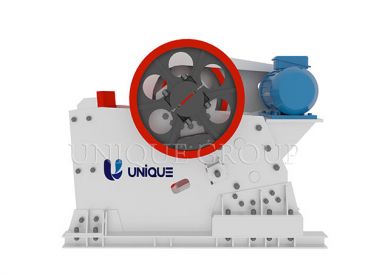
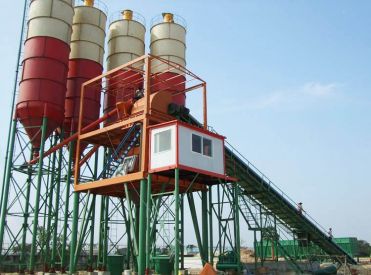
.jpg)
